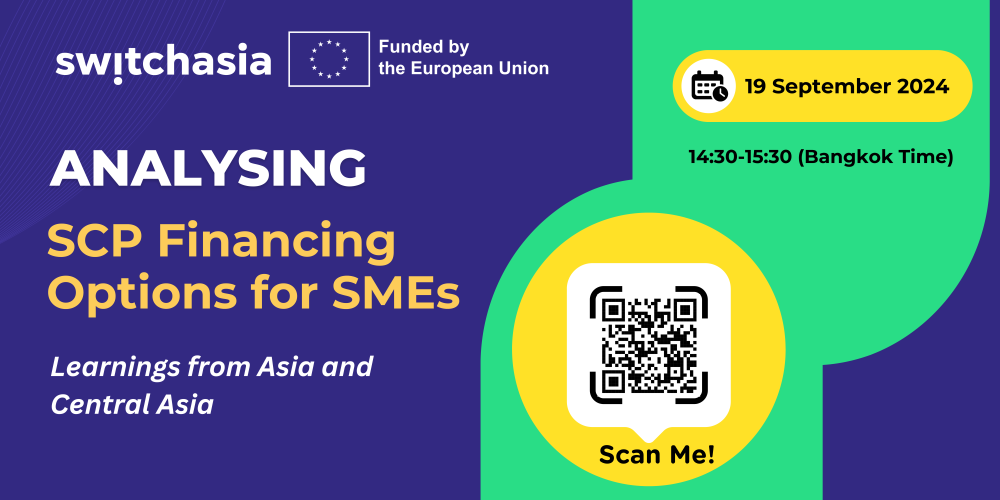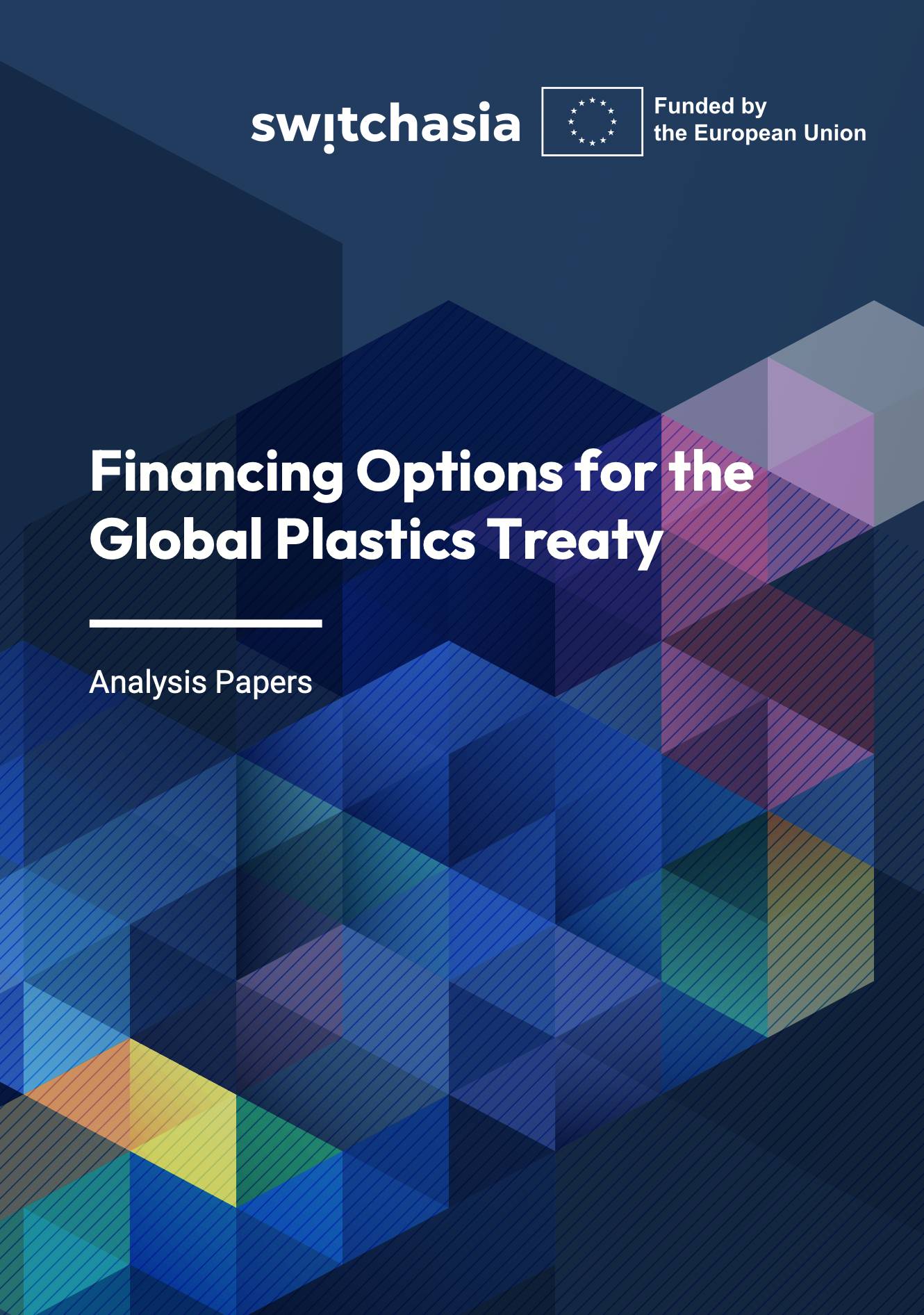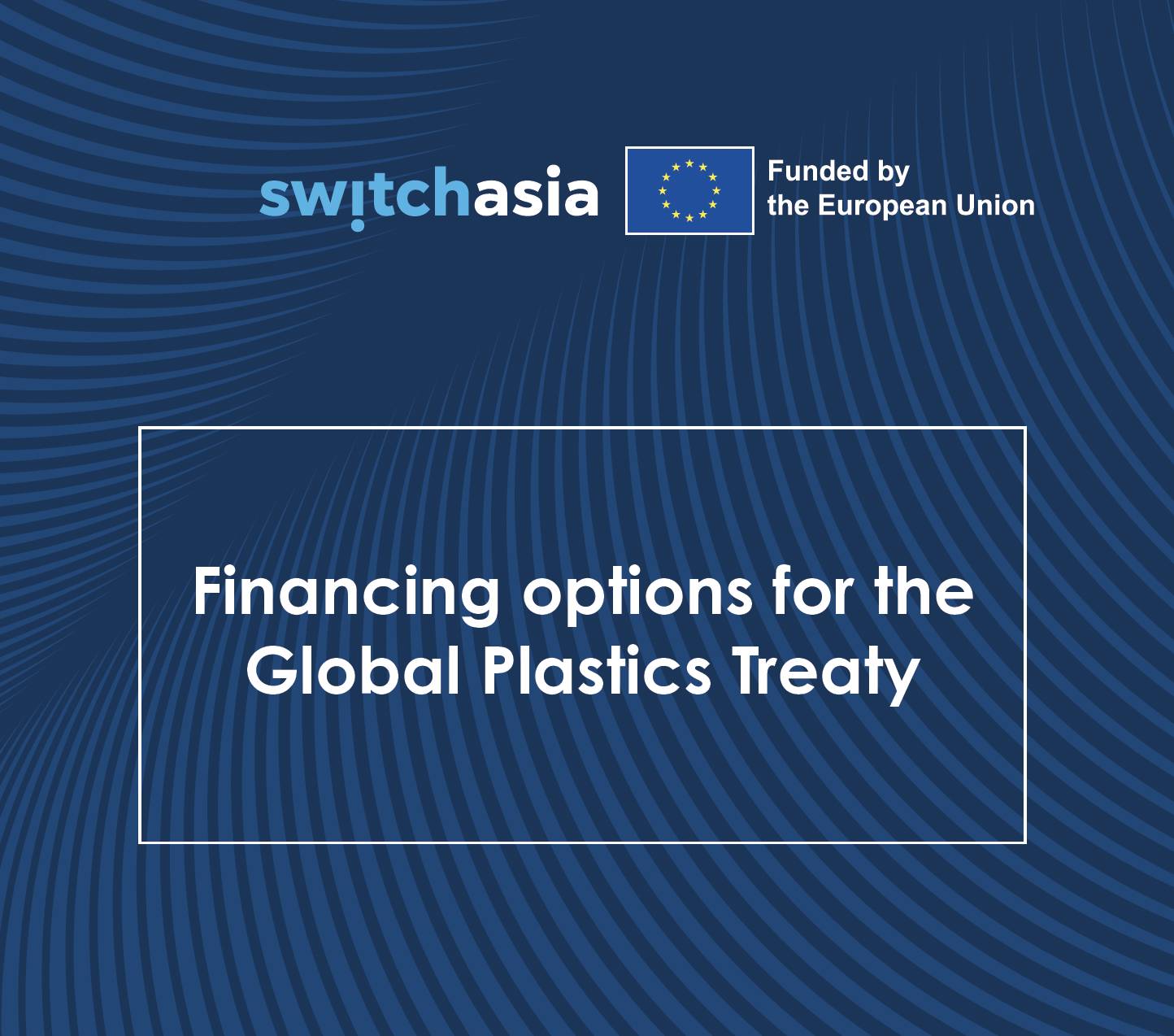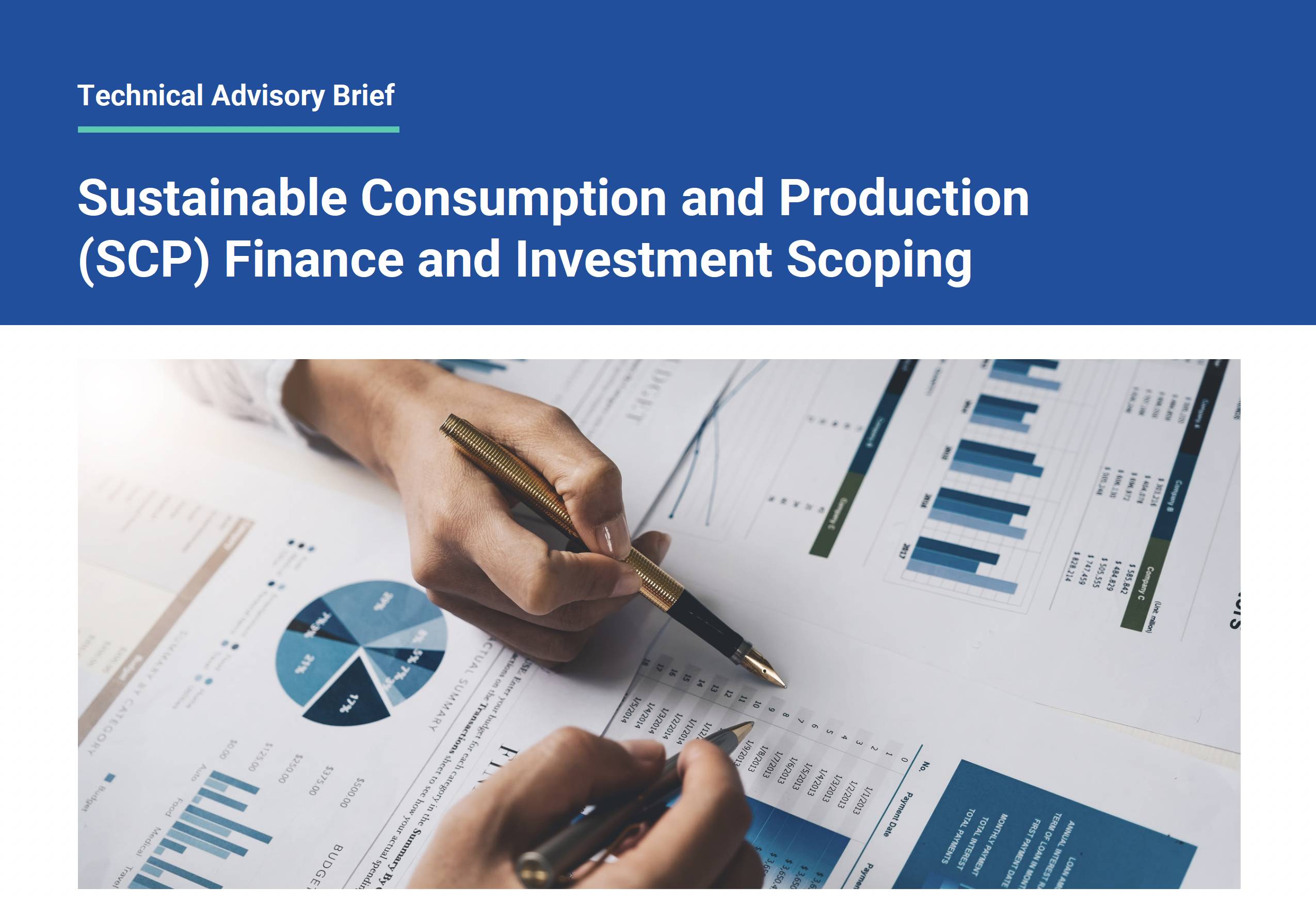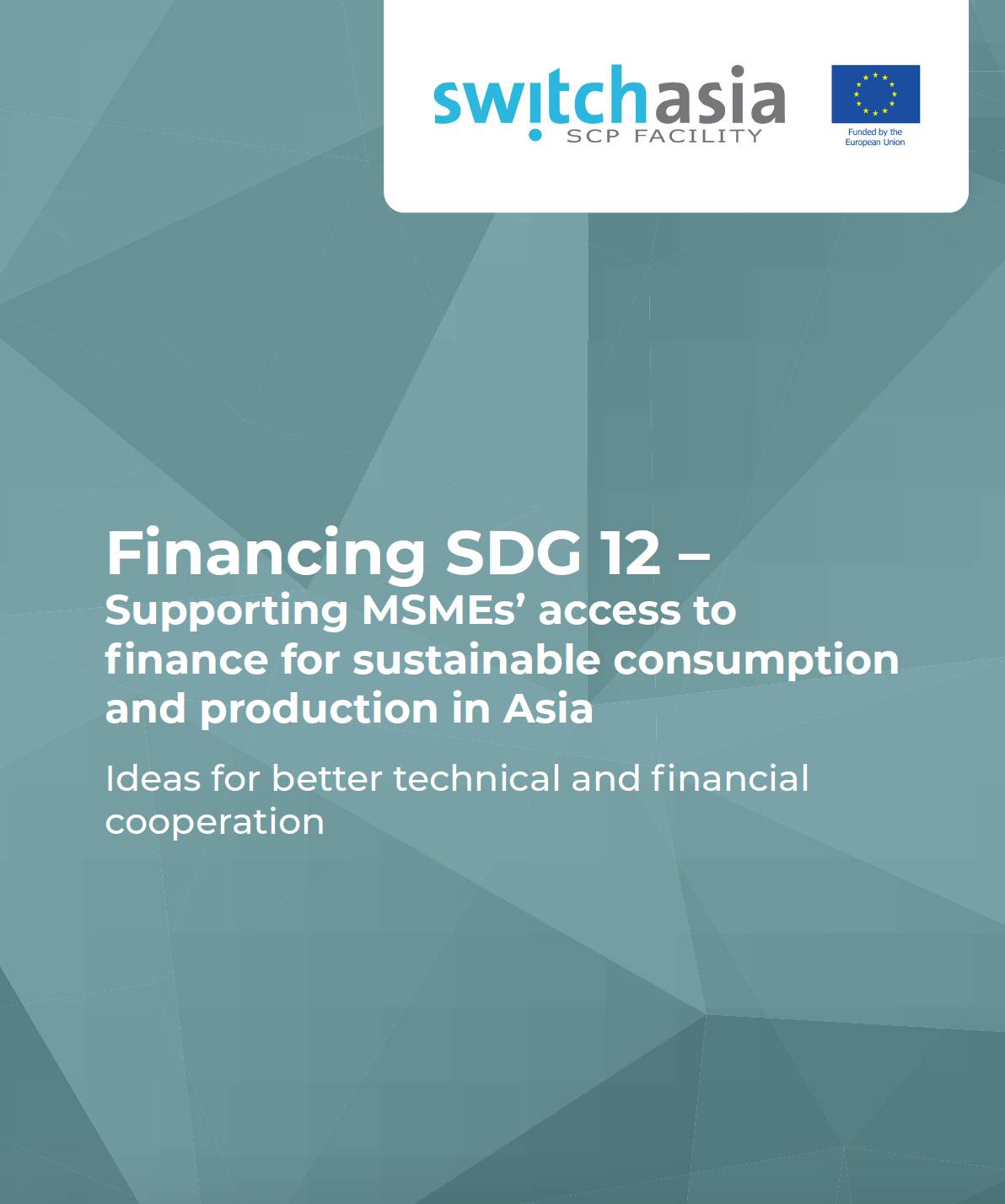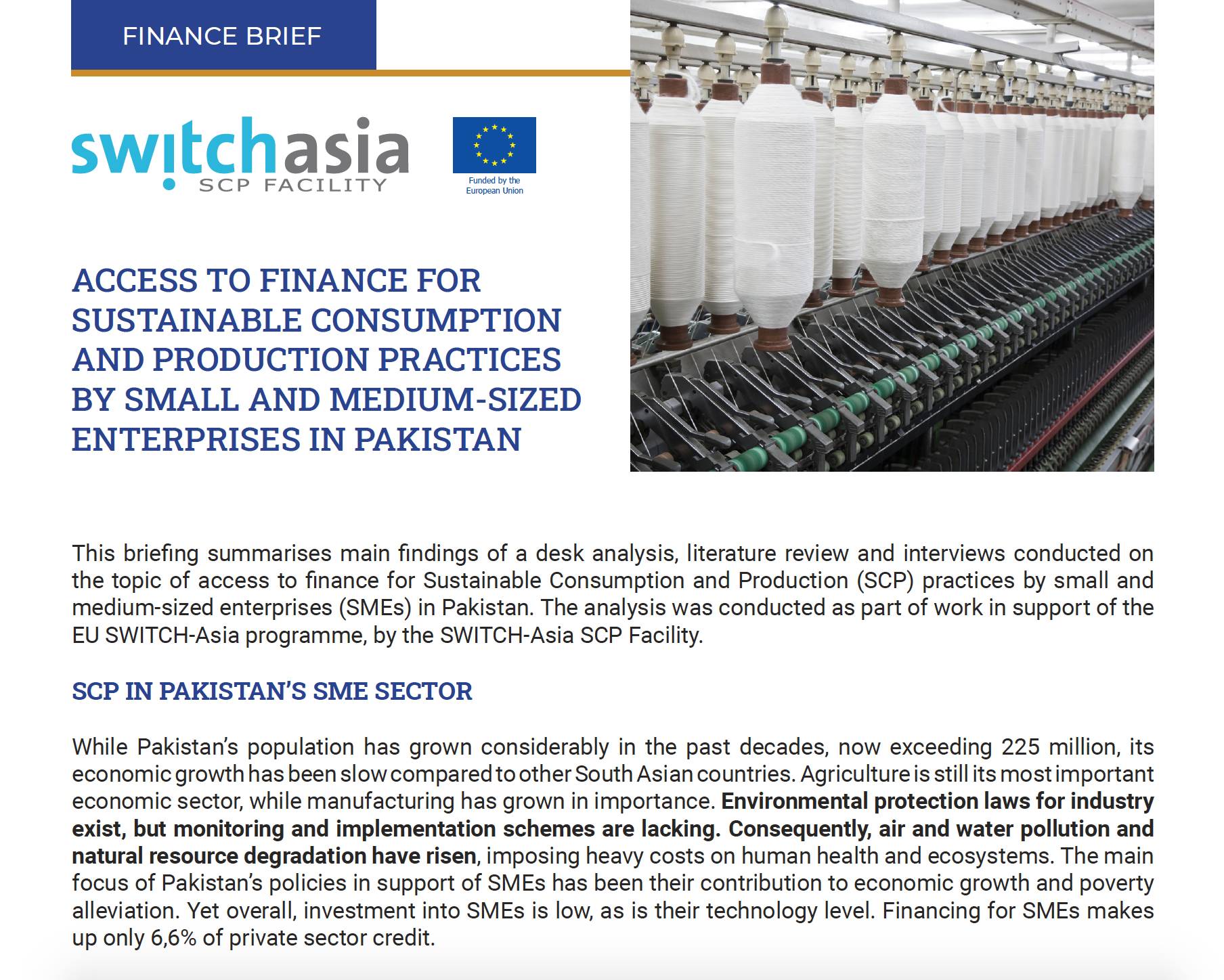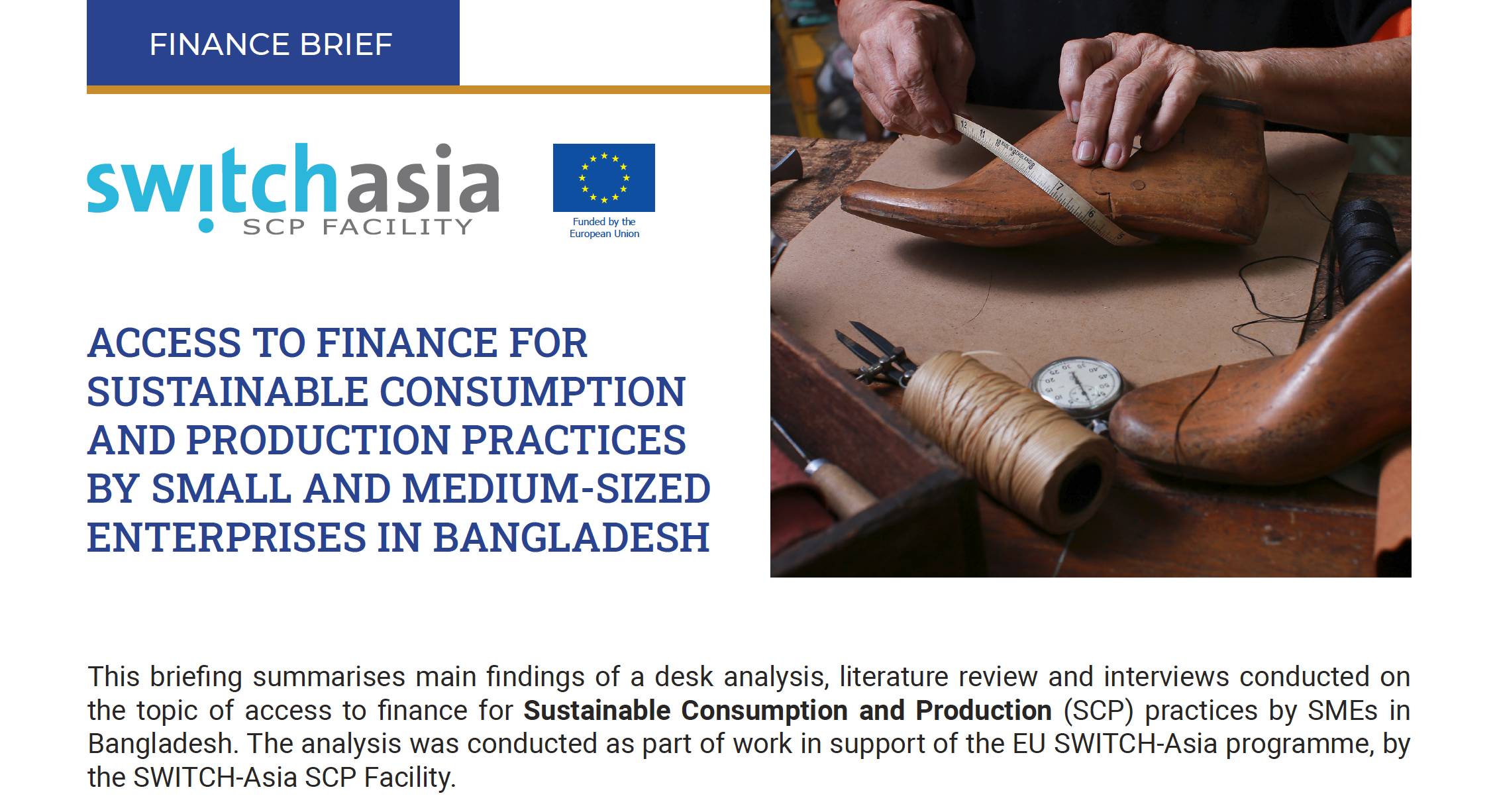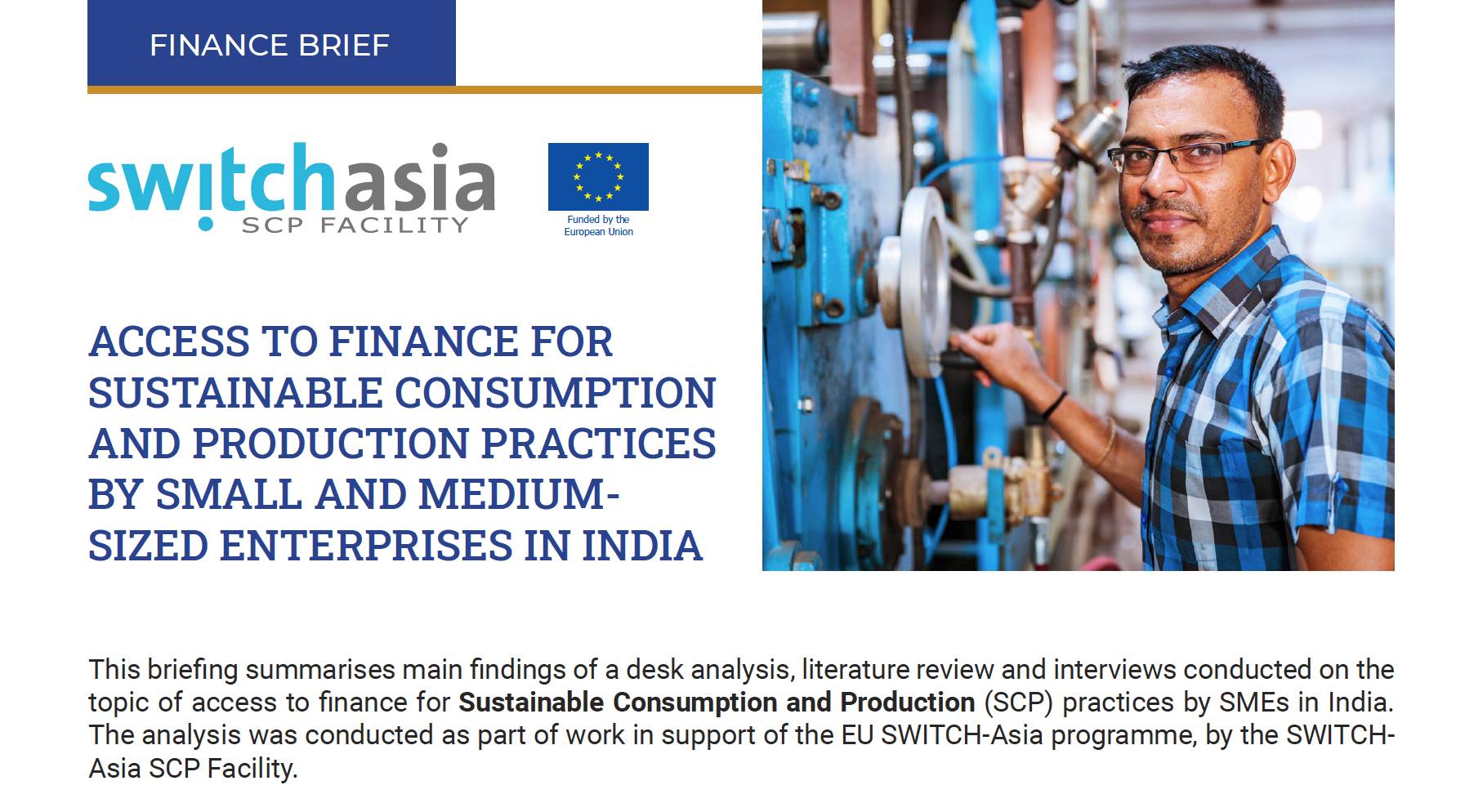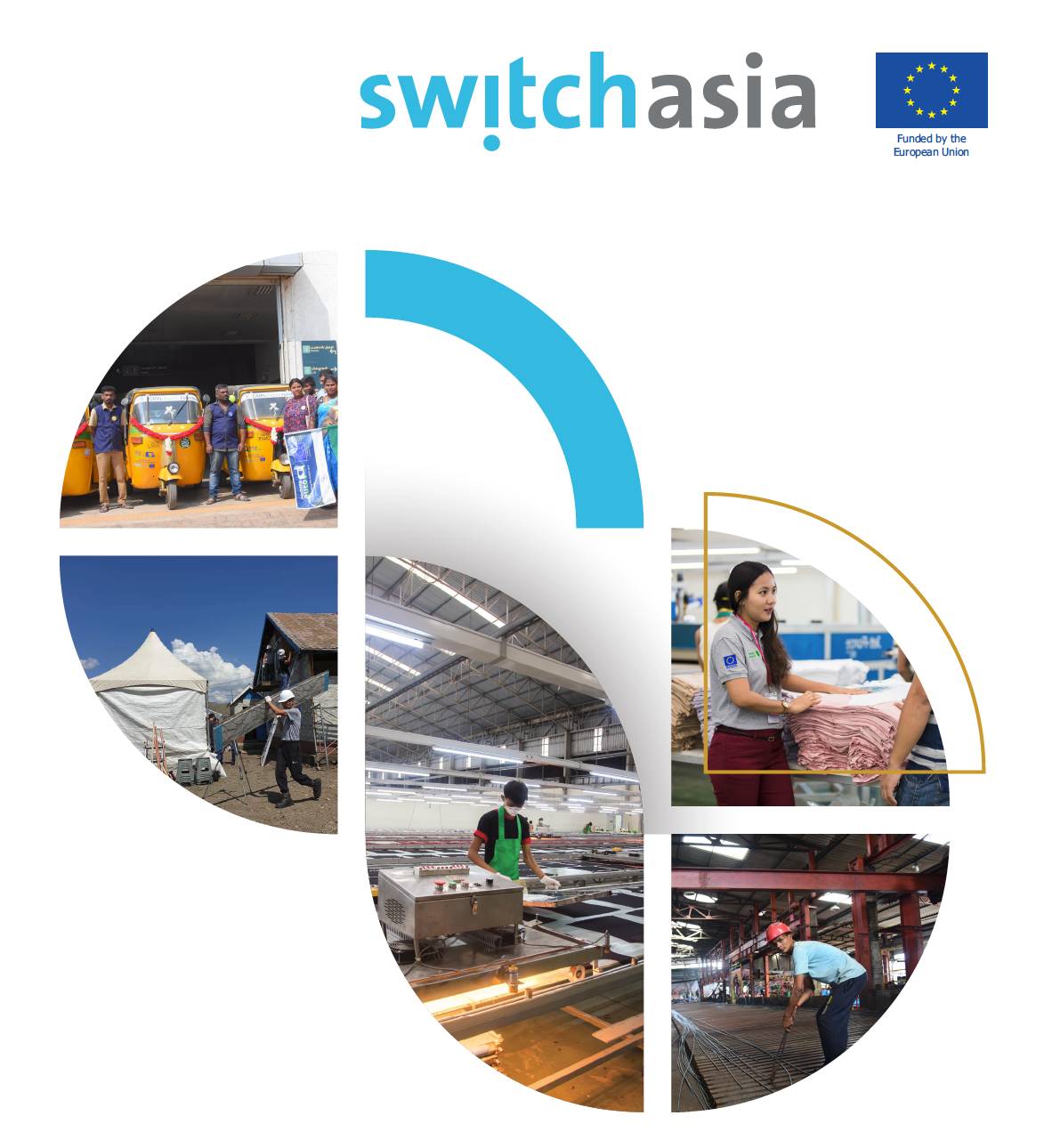
Locations: Indonesia, Vietnam, Cambodia, Bhutan, Bangladesh, India, Uzbekistan, Kyrgyzstan, Tajikistan, Pakistan, the Philippines, and Lao PDR (Completed)
Themes: Finance
The Challenge
Mobilising finance for investing in SCP is highly relevant for effecting a transformative shift toward more sustainable economies and societies. While significant regional diversity exists, Small and Medium-sized Enterprises (SMEs) that are willing to transition to sustainable production approaches generally encounter similar obstacles when seeking financing from Financial Institutions (FIs). To effectively support SWITCH-Asia’s priorities, it is essential to analyze how financial institutions can better incorporate SMEs’ needs for SCP finance into their lending and support strategies. This is particularly applicable to local banks engaged in SME financing.
Development Finance Institutions (DFIs) play a role in supporting local FI lending. To achieve greater impact in SCP, it is important to align their programs with policies and strategies aimed at delivering results in areas corresponding to the Paris Agreement and the Sustainable Development Goals (SDGs), and in the case of EU DFIs, the EU Green Deal along with its strategies and Action Plans. To achieve this in an efficient and effective manner, it is crucial to establish a knowledge foundation that informs DFIs and local FIs about past, present, and planned SCP financing initiatives. This should encompass programs, legal frameworks, and private sector initiatives.
Objectives
- Strengthen the understanding of EU and SWITCH-Asia stakeholders on SCP finance institutions in the target region and opportunities of integrating SCP considerations in development finance cooperation
- Inform SWITCH-Asia stakeholders on how to connect financing schemes with SCP-relevant policies and how to assure SCP impact
Way Forward
- Assess the status and trends with regard to finance landscape, including climate, circularity and other sustainability aspects
- Conduct a country-specific overview on SMEs’ SCP financing options, including specific programmes for financing circular economy such as modernisation / upgradation of machinery and business cases for increased resource efficiency and pollution prevention, "greening" sectors like waste, water, transport and sustainable consumption.The scoping will include national legislation on SCP (finance), government / public programmes international / bilateral financing programmes, as well as programmes and initiatives by banks, non-banking financing institutions / Fintechs, incubators / seed investors and other relevant initiatives / networks / events
Webinars
Watch the recording here


